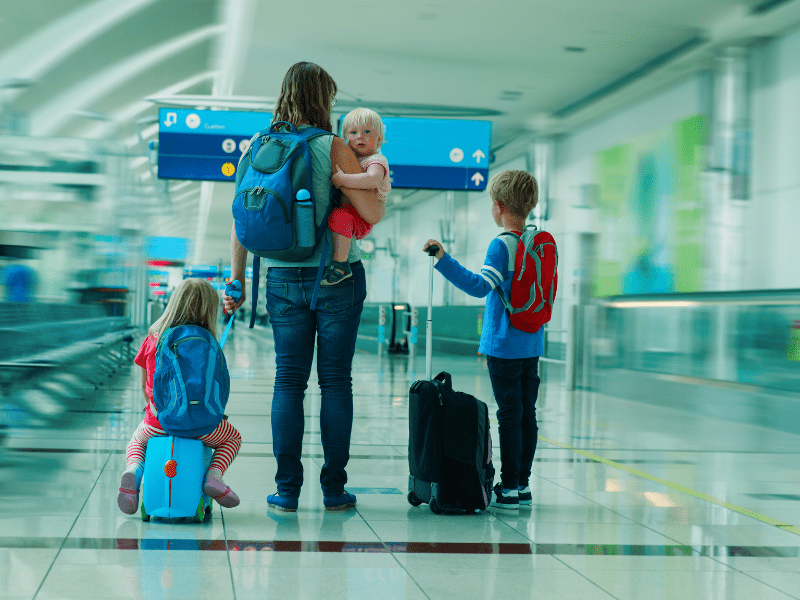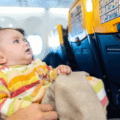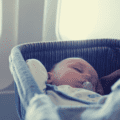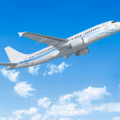Should You Travel Abroad with Your Baby?
Are you debating a trip to Europe with your baby and wonder if you should travel abroad with your baby? Traveling in the United States – or wherever you live – feels intimidating, but taking your baby to a new country requires even more planning and preparation.
It may lead to having some questions, like is it safe to travel abroad with a baby? Should you be worried about health risks?
The reality is that traveling by plane exposes your baby to more colds, flus, and viruses, so vulnerable infants may not be the best candidate for international traveling. On the other hand, small infants are generally easy travel companions, and you can see the world with an infant in tow. As long as you understand the health risks and how to do so safely, traveling abroad with your baby is generally not a problem.
Keep reading to learn more!
Pin this blog for later! ↓
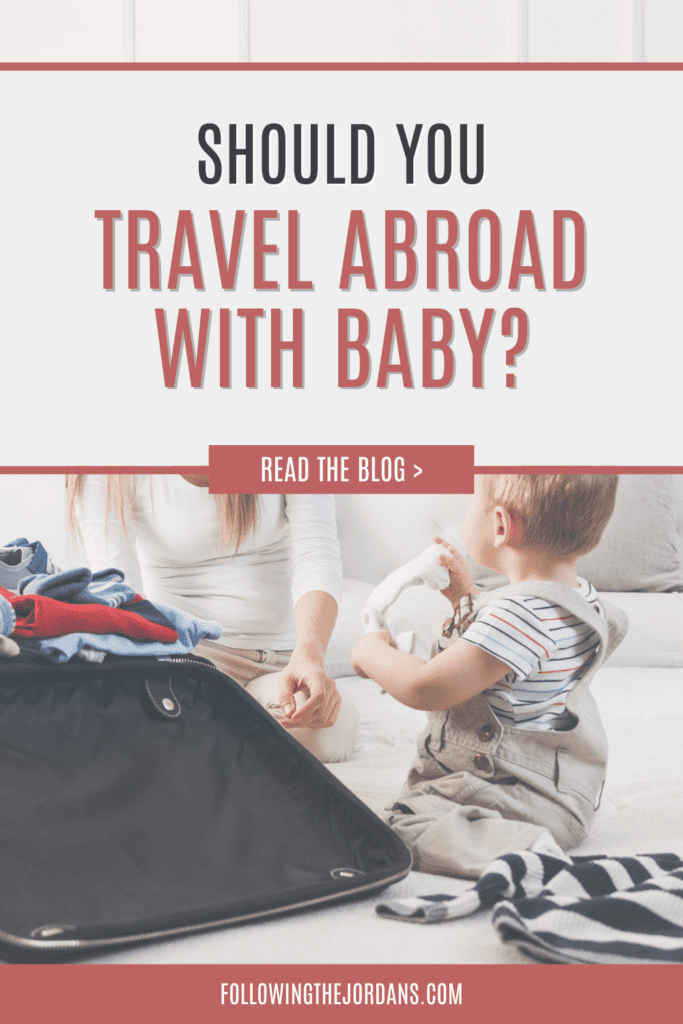
Related: 12 Helpful Tips for Flying with Small Children
Should You Travel Abroad with Your Baby?

Traveling abroad with your baby is a great idea! Once your baby begins to receive their immunization series, babies are great traveling companions internationally. Before your baby becomes mobile, they go with the flow – do they have any other option? – and require all the care you regularly give them.
Just in a new location.
Taking your baby to new destinations is exciting, but you’ll find varying opinions about whether or not it’s a good idea to do so.
Some experts suggest waiting until your child is three months old to ensure they started to receive some of their immunizations. Other experts advise waiting until your child is fully vaccinate against life-threatening illness around two years old.
That’s quite a wide range! So, the best thing for you to do is speak to your pediatrician and decide what you feel more comfortable doing.
Can I Travel Internationally with a Newborn?
Yes, it is possible to travel internationally with a newborn. However, it’s likely your baby will need a passport to leave your home country and reenter, so you should consider how long it takes to receive a passport.
However, experts recommend waiting until your baby has his first set of immunizations, between two and three months old, before air travel. This is because the air in airplanes is recirculated in a confined space, so you have a greater chance of contracting an illness. Newborns have delicate immune systems, so if they end up getting sick, it could before serious fast.
Related: 5 Best Car Seats for Airplane Travel in 2022
Do Infants Need a Passport for International Travel?

Yes, if you plant to travel internationally, your infant will more than likely need a passport. If you plan to travel from the United States to Canada, then you can use their official birth certificate to enter and exit the country.
However, if you plan to travel abroad, infants requires a passport, and this process requires times.
Parents must apply for infant passports in person. Unfortunately, while adults may apply for passports online or over the phone, it’s not the same for infants. So, determine where your nearest acceptance facility is, which is often a post office near you.
Make sure you check ahead of time because some facilities requires appointments to be made ahead of time. If you want to receive the passport quickly, you have to find an expedited passport processing facility, and it will cost an additional fee, typically around $60.
Here’s what you need to bring with you to get an infant passport.
- Official birth certificate
- Proof of US citizenship
- Social security number
- All legal parents
- A passport photo
- Photocopies of everything
What is a Good Age to Travel Internationally with a Baby?
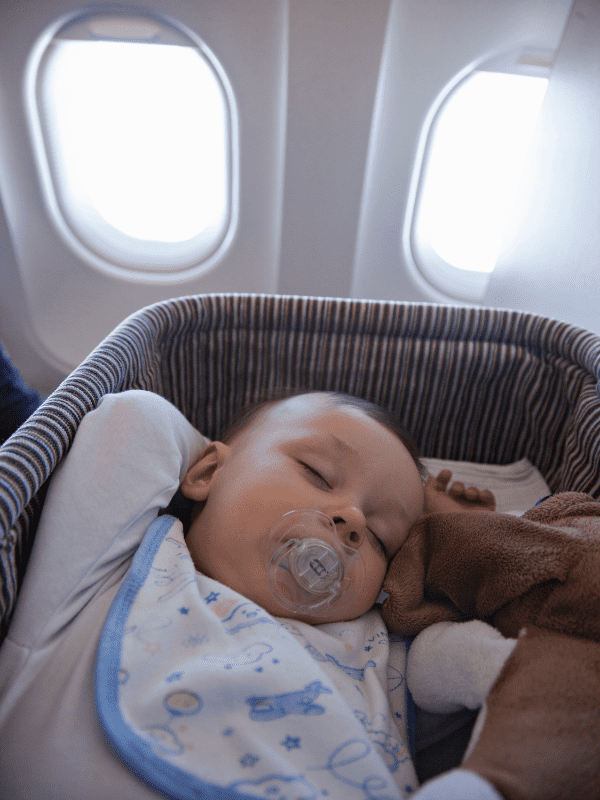
Taking a trip abroad costs a good deal of money, so you want to make sure you time it properly so everyone enjoys it. If you want to take a baby on an international trip, the best times are between three and nine months.
Typically, at this time, your baby is happy but not yet fully mobile. You don’t want to chase a walking 11 month old throughout the airport, and toddlers learning these new gross motor skills rarely want to be held down in a car seat long enough to make the flight overseas.
If you skip this age range, the next best time to travel abroad with your child is after two or three years old. Skipping the toddler phase is ideal since they tend to be less patient when it comes to long travel days.
Is Air Travel Safe for Babies?
As long as your baby is healthy and full-term, then air travel is typically deemed safe. However, you should always take a look at your baby’s individual health before making the decision to fly anywhere, especially overseas.
Here are some considerations.
Age & Health of Your Baby
Most pediatricians discourage unnecessary air travel shortly after birth. A newborn doesn’t have a strong immune system yet, and air travel increases the risk of catching an infectious disease.
Baby’s Ears
Something else to consider is the changing cabin pressure during flights; it causes temporary changes in the middle ear pressure, triggering ear pain. It’s best t try to decrease this discomfort in your baby, so offer your baby the breast, a bottle, or pacifier to suck during take off and initial descent.
Also, if your baby has had an ear surgery or ear infection within two weeks before the flight dates, ask your doctor if flying is safe.
Another factor to consider is the noise level of airplane cabins. They tend to be loud, especially during takeoff. Noise-canceling headphones or small ear plugs will limit your baby’s exposure to the noise.
His Breathing
Did you know that the air pressure in an aircraft cabin is lower than the air pressure on land? Healthy babies typically have no problems with this change in oxygen level, but if your baby is premature or has heart or lung problems, it could be a problem.
Fly with a Seat
It’s highly recommended that you purchase a seat for your infant. Most infant car seats are certified for air travel, and while airlines allow parents to hold their infants on their laps during flight, the Federal Aviation Administration and doctors recommend riding in a secured safety seat. You never know how much turbulence you will experience during a flight, and securing your infant in a seat is safer.
Flying with your baby is a grand adventure, and it’s even more exciting to travel abroad with your baby! Pay attention to any health advisories in the country you want to travel and consider waiting until your child has some immunizations before heading out of the country!


